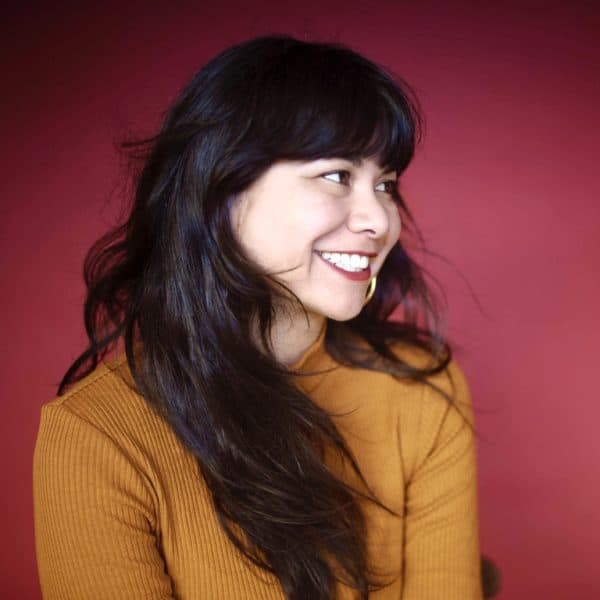Advertisement
In Los Angeles, Protests Highlight Growing Cross-Racial Solidarity
Resume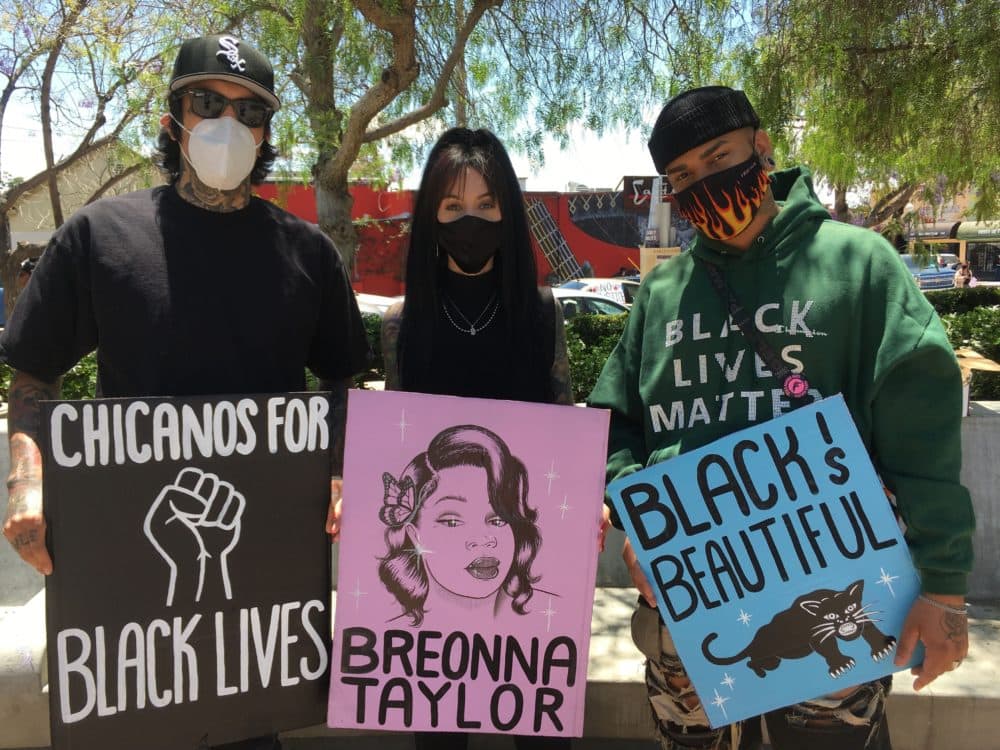
The killing of George Floyd by a Minneapolis police officer has created a worldwide movement unprecedented in its size and racial makeup.
The fight against police brutality and institutional racism is driving nonblack people to the streets like never before. In Los Angeles, protests over the weekend in two very different neighborhoods highlighted this growing solidarity across racial lines.
In Pasadena, the Southern California city known for hosting college football’s Rose Bowl, a flood of protesters marched past Tasha Kirksey’s apartment complex this weekend. Kirksey, a black woman originally from Chicago, looked bewildered as she recorded from her cellphone her white, Latino and Asian neighbors marching for black lives.
“It’s just so many people in solidarity, which I love because it’s about time for us to get recognized and we are treated unfair,” Kirksey says. “And so I’m glad that people are finally standing up for us because it's overdue, been overdue.”
Pasadena is kind of a microcosm of the United States. About 10% of the people who live in the city identify as black, and like most places in this country, there is a history of racism.
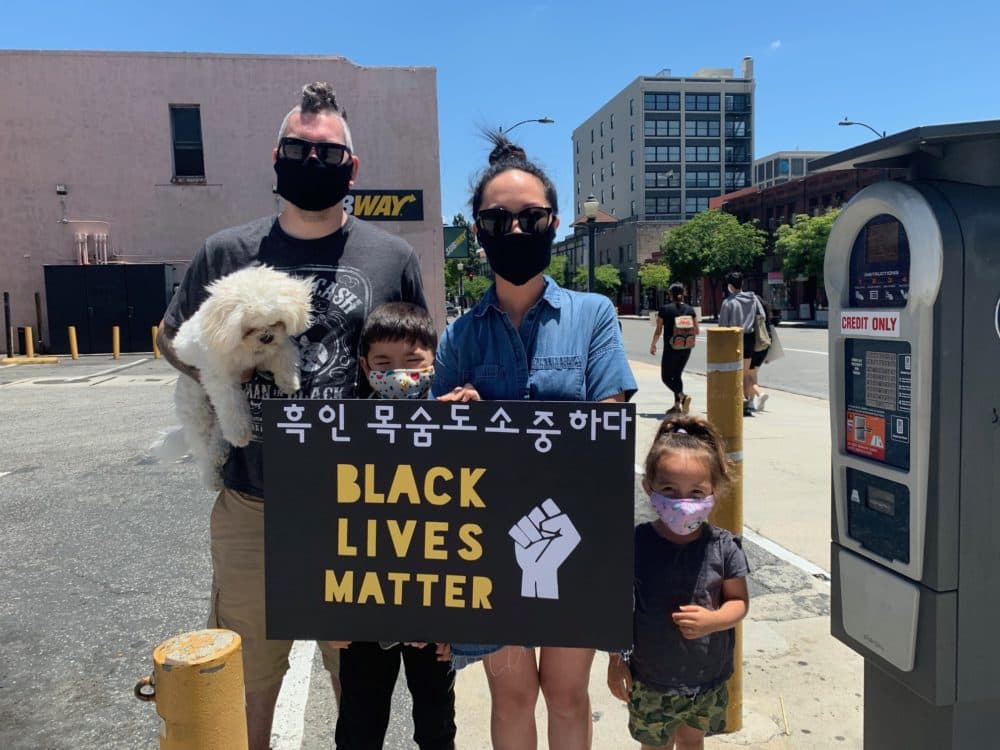
Restrictive covenants prevented black and brown people from purchasing homes and attending schools in Pasadena until the U.S. Supreme Court abolished them in 1948. But efforts to keep black and brown residents out of Pasadena lingered for decades.
At an intersection along Fair Oaks Avenue, a major road in Pasadena, Caroline Bowling, along with her husband, 7-year-old son and 4-year-old daughter, held up a Black Lives Matter sign written in Korean.
“I was about 7 years old during the Rodney King riots,” Bowling says. “Some would say that my dad was one of the roof Koreans, you know, so he would go out and we wouldn’t see him for days.”
During the 1992 riots, Bowling says her father joined a movement to protect their property by standing on the roofs of their storefronts with guns. Twenty-eight years later, Bowling says she is thinking deeply about her role in breaking down systemic racism, which starts with teaching her children that they “live this privileged life.”
“Constantly I've been seeing especially blacks and Latinos and Asians get handcuffed before they're even questioned,” she says. “To be honest, I'm really quite embarrassed that I've gone this long without saying anything.”
Walking alone was Minju Yoon with a sign that read “Black Trans Lives Matter.” She says she's been reading lately about police brutality against black transgender people and wanted to be part of teaching what she's learned.
“I think I've been in a learning process since the 2016 election,” Yoon says. “I used to be very moderate and liberal, and learning more about the history America has of oppression and systemic racism, and how much it's been built on the genocide of natives and just taking advantage of marginalized communities has really radicalized me.”
A few steps away from her was Ralph Tiede, a white man who in the spur of the moment decided that he and his wife should join the protests.
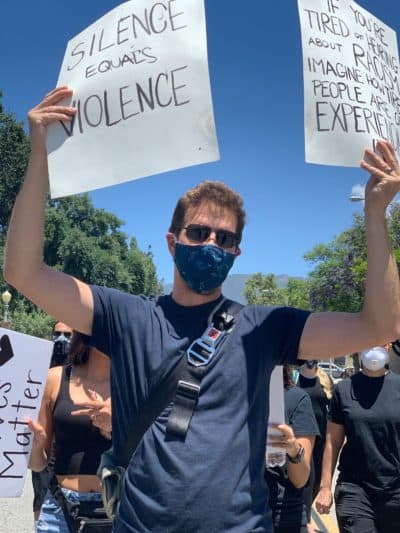
“I'm a white man and I was just sitting at home comfortable and really never did anything about the injustice, and I finally realized that it's my time to get involved,” he says. “I see how angry people are and how many people are angry, and it's just hard not to join it and to get angry as well.”
For the first time, Tiede says he’s talking about racism with other white people in his life, including his in-laws.
“We had a long conversation with her mom yesterday, and we noticed her changing the way she speaks about this issue, too, over the years, because we've been having this conversation for a while,” he says. “And it's really great to see older generations kind of shifting the way they're thinking and talking about these issues.”
About 10 miles south of Pasadena in the East LA neighborhood of Boyle Heights, a historic Latino community in the midst of gentrification, hundreds of protesters gathered at Mariachi Plaza on foot and in cars.
Marcos Alvarez drove over 65 miles from Palmdale, California, to attend the protests in Boyle Heights. The neighborhood looks a lot different than when he was a kid, he says. He used to get raspados, or shaved ice, at a corner store at the intersection of 3rd Street and Indiana Street. It’s now a coffee shop.
“Historically, the stereotype is that blacks and Latinos don't get along, right?” Alvarez says “You have to tackle the problem from within.”
He says Chicano organizations such as the Coalition for Humane Immigrant Rights of Los Angeles and others have to come together with black leaders in South Central and across LA.
“So the powers that be have to come together, shake that hand, create that dialog and get rid of the history that has divided us to begin with,” he says.
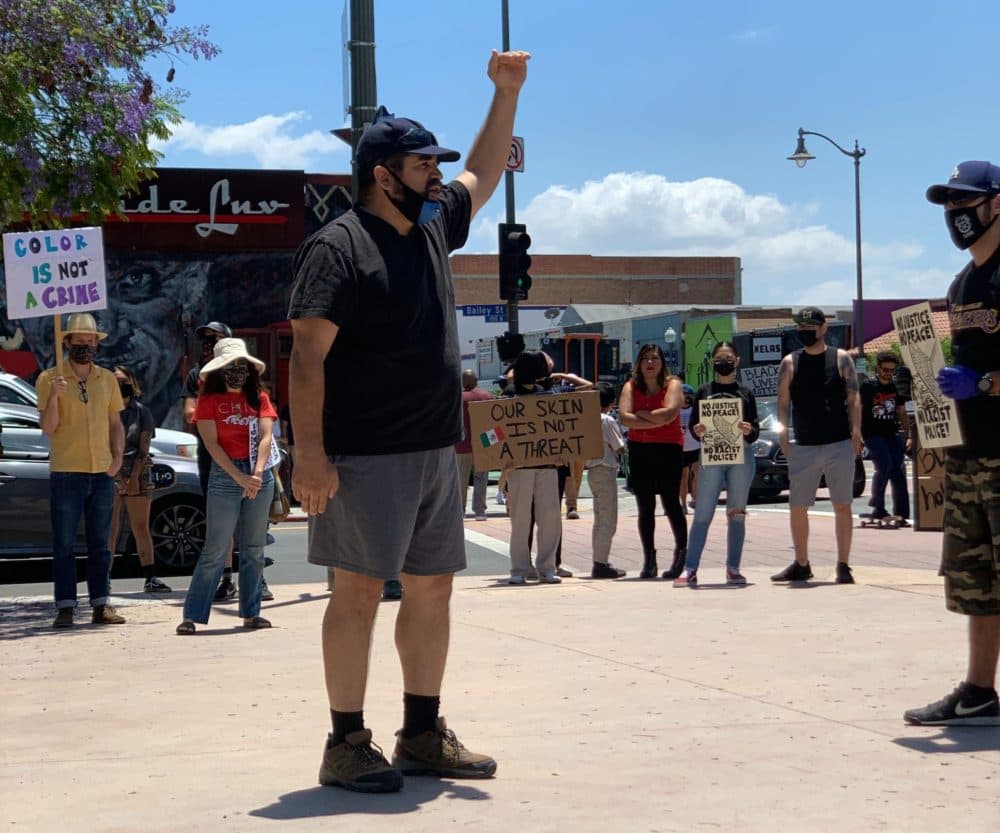
Alvarez recognizes that this kind of solidarity is painful, but also necessary.
“I'm proud of my culture,” he says. “I have witnessed many wrongdoings against the people of color, and I'm tired. Tired enough to reach out to my younger brothers and sisters in this community to make change.”
This is the kind of change Deja Garcia has been thinking a lot about lately. She grew up in a household that didn't talk about race and racism openly, she says, and now she's now having those conversations with her 2-year-old daughter.
“Obviously, she doesn't really understand it, but [I’m] kind of trying to start a conversation, at least with her,” Garcia says. “Our kids are the next generation, and we have to teach them in order to kind of move change. We move it through the youth and the kids, and once you install it in them, who knows what the future will hold.”
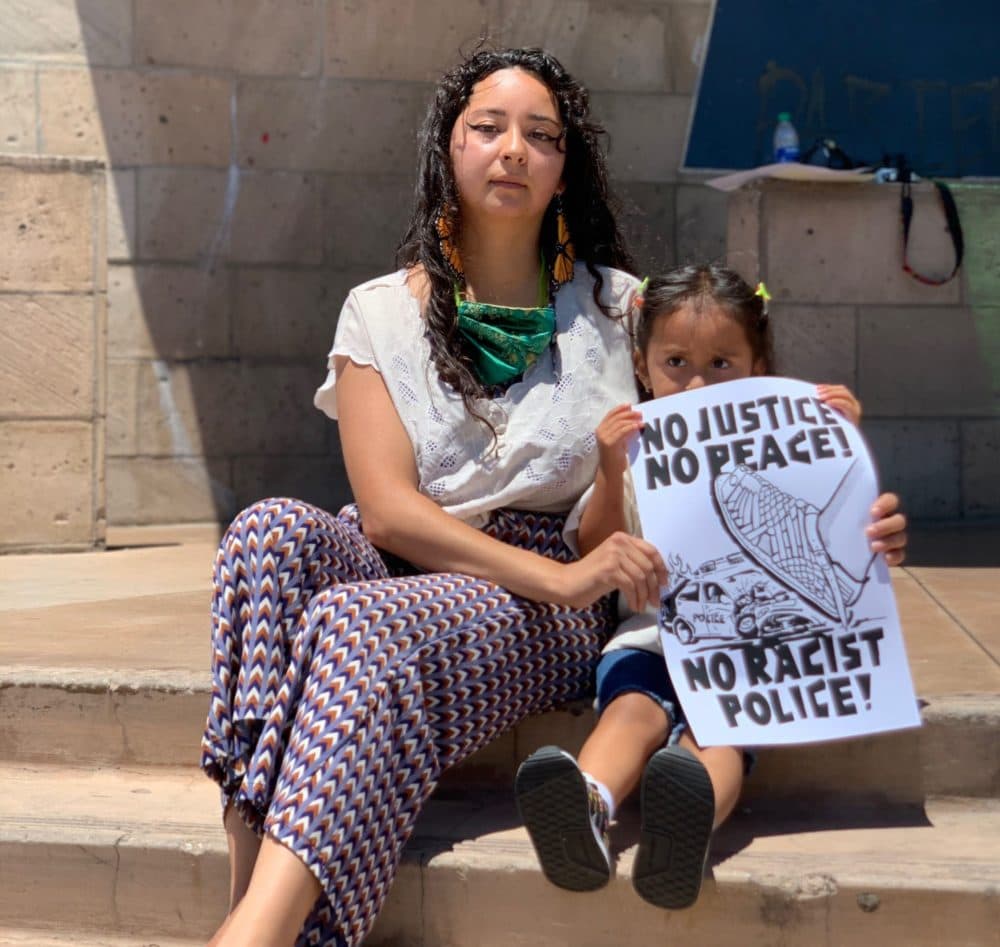
As the protesters weaved through Boyle Heights, families and neighbors came out to watch and hand out water.
Leticia Garcia stepped out of her clothing store to cheer the protesters on. For her, the struggle is always about making things better for the future.
It's something Garcia says she believes in and wants for the United States, a country she now considers her own.
Boyle Heights and Pasadena are two very different communities that have joined the larger movement to demand justice and equality for black Americans. It’s a slice of cross-racial solidarity that is spreading across the world.
Cristina Kim produced and edited this interview for broadcast with Eileen Bolinsky. Samantha Raphelson adapted it for the web.
This segment aired on June 8, 2020.

